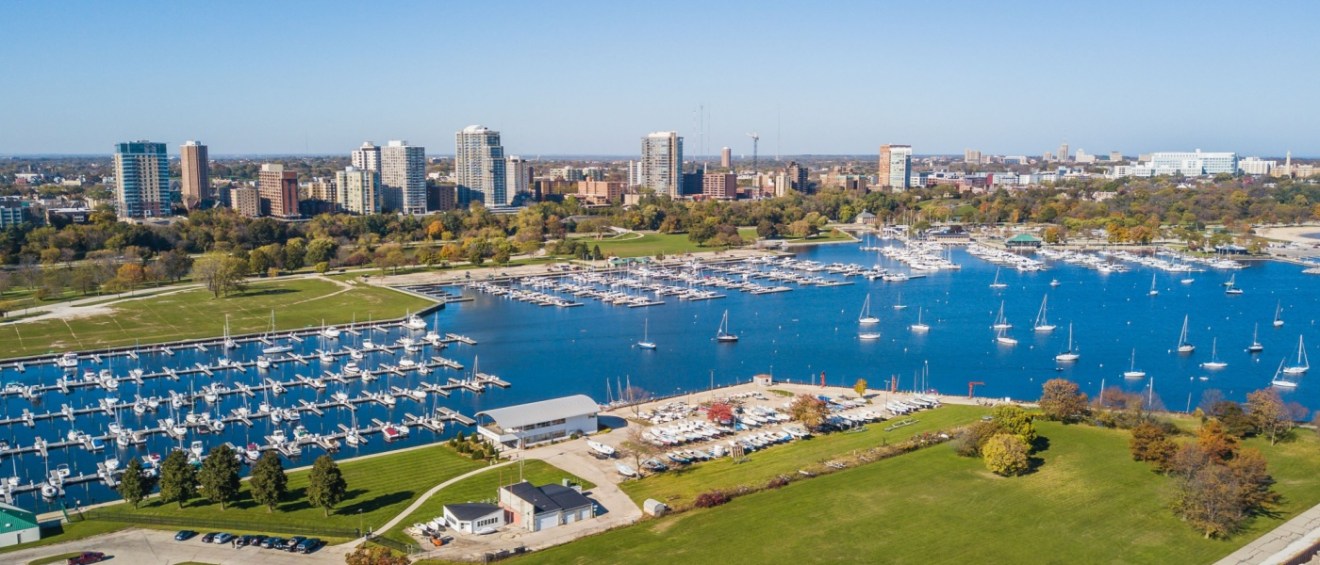Cost of Living in Milwaukee: What to Expect When Living Here as a Renter
Share this article:
Moving to a new city can be both exciting and overwhelming, especially when you’re renting. As a renter, understanding what expenses you’ll face in your new city can help you budget and ensure you’re making a financially sound decision.
Milwaukee has become one of the most sought-after cities for apartment hunters in recent years. Ranked as the third hottest rental market, the Cream City attracts renters for its blend of urban amenities, rich history, and proximity to Lake Michigan. But just how much money would you be spending on a daily basis as a renter in this city? Let’s go through the numbers before you start searching for apartments for rent in Milwaukee.
So, here’s how the cost of living in Milwaukee stacks up against the Wisconsin average and the national norm.
What is the Average Cost of Living in Milwaukee?
The median household income in Milwaukee is $49,733, and the overall cost of living in the city is 3% higher than the state average and 1% higher than the U.S. average. This means that while costs are slightly higher than in the rest of Wisconsin, Milwaukee is still relatively affordable compared to larger cities across the country.
Housing, in particular, is one area where Milwaukee stands out: It’s 14% more expensive than the national average, with the average monthly rent coming in at $1,516. Utilities are also about 3% more expensive, which is something renters should keep in mind when budgeting for monthly bills.

Beyond housing and utilities, Milwaukee has its own unique balance when it comes to daily necessities. Groceries, for instance, are around 2% less expensive than the national average. This slight decrease could make a noticeable difference over time, especially for renters who love to cook at home or prefer buying locally sourced produce. Similarly, clothing costs in this city are about 2% below those in other parts of the U.S., allowing for a bit of flexibility in wardrobe spending.
Healthcare, however, is slightly more expensive in Milwaukee, with costs for services like doctor check-ups and dentistry averaging 10% higher than the national standard. This is an important factor for renters to consider, particularly those who require regular medical care or have families with healthcare needs. On the other hand, non-essential expenses such as entertainment and grooming services are 2% cheaper in Milwaukee compared to the national average. So, renters looking to enjoy Milwaukee’s varied cultural scene or treat themselves to a day at the spa may find they can do so at a slightly lower cost.
Is Milwaukee a good choice for renters?
Overall, the cost of living in Milwaukee is just slightly higher than both the state and national averages. Renters should expect to spend a little more on housing and utilities but can enjoy some savings on groceries, clothing, and non-essential services. As with any city, individual expenses will vary, but Milwaukee offers a balanced cost of living that allows for both comfort and enjoyment without breaking the bank. And let’s not forget its strong focus on sustainability and economic vitality filled with opportunities for renters, including in its growing tech sector.
Whether you’re already considering moving to the Cream City or you’re still weighing your options, knowing the average cost of living in Milwaukee will help you make an informed decision.
Curious about the financial implications of living in other cities across the U.S.? Check out our guides for the cost of living in Chicago, cost of living in Detroit, cost of living in Atlanta, cost of living in Minneapolis and cost of living in Vancouver, WA.
Share this article:
Florin Petrut is a real estate writer and research analyst with RentCafe, using his experience as a social media specialist and love for storytelling to create insightful reports and studies on the rental market. With a strong interest in the renter experience, he develops data-driven resources that explore cost of living, affordable neighborhoods, and housing trends, helping renters make informed decisions about where and how they live. Florin holds a B.A. in Journalism and an M.A. in Digital Media and Game Studies.
The Ready Renter has your back
Tips, news, and research curated for renters, straight to your inbox.




Related posts
Subscribe to
The Ready Renter newsletter







